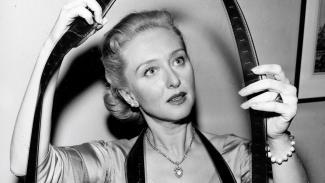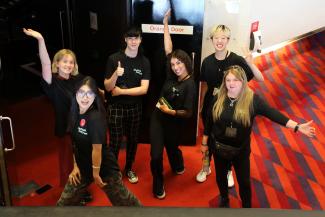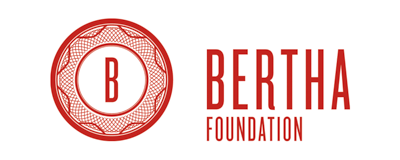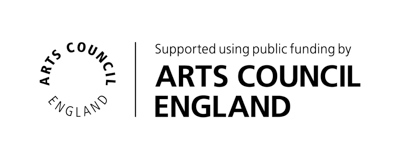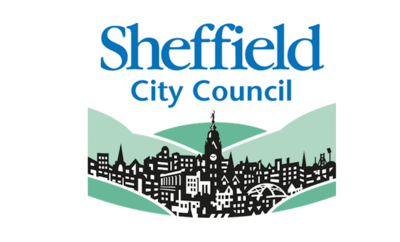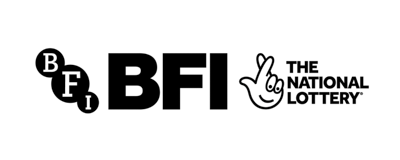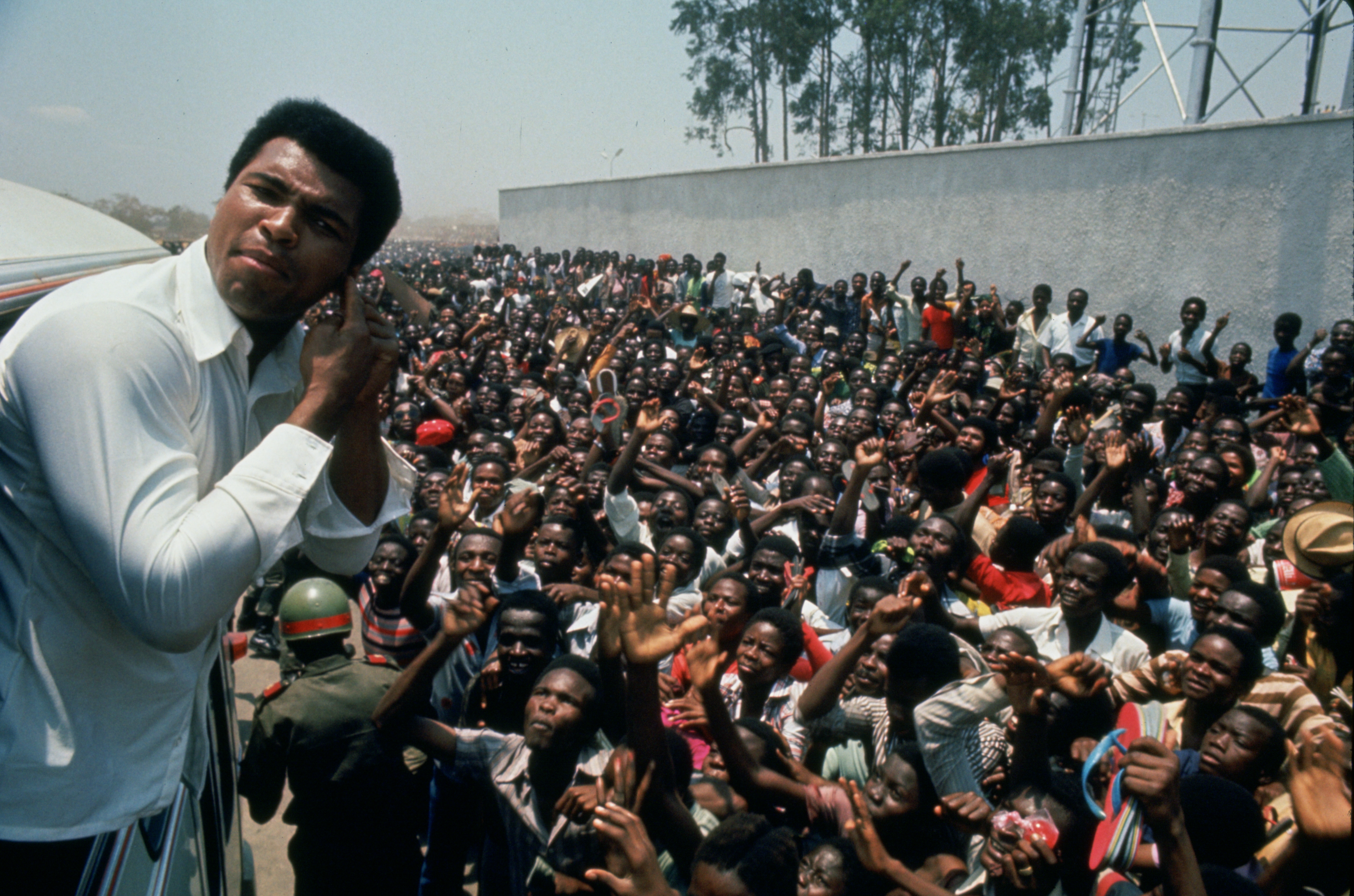
We are delighted to reveal Guest Curator, Asif Kapadia’s selection of films that will form part of his contribution to this year’s Festival, and that he will take part in an In Conversation event with long-time collaborator Chris King.
The Academy Award® and BAFTA-winning filmmaker, whose acclaimed documentary films include SENNA (2010), AMY (2015) and DIEGO MARADONA (2019), has selected films that have had significant impact for him, inspiring his own style and creative choices as a filmmaker. ‘A Documentary Journey with Asif Kapadia’ includes works by some of the world’s most renowned filmmakers - Martin Scorsese (ITALIANAMERICAN) and Claude Lelouch (C’ÉTAIT UN RENDEZ-VOUS); alongside rarely screened films such as DARK DAYS and FOURTEEN DAYS IN MAY which have taken on greater resonance in recent years. Kapadia has also chosen A GREAT DAY IN HARLEM and LA JETÉE two films which use still, photographic images as a source for building narratives; as well as the British cinematic classic, LONDON.
Asif Kapadia says: “This selection is personal to me, as someone who grew up in Hackney in the 1970s and 1980s. I didn’t come from an art or film background. It was quite profound to know that it was possible for someone to make films like these.”
Kapadia remembers the power of seeing WHEN WE WERE KINGS, also included in this specially curated selection, on the big screen, acknowledging the impression Leon Gast’s seminal documentary about the boxing match between George Foreman and Muhammad Ali: “Without this film, there would be no AMY. There would be no SENNA. There would be no DIEGO MARADONA.”
Reflecting on his own past successes, Kapadia will participate in a conversation with frequent collaborator, editor Chris King. ‘Cutting the ‘Fame’ Trilogy’ will be the first occasion in which Kapadia and King come together to discuss their decision-making about what scenes and sequences they chose to leave out of AMY, SENNA and DIEGO MARADONA. During the exclusive session, they will open up the archives and revisit unused material in a frank and insightful discussion hosted by Jason Wood, BFI’s Executive Director of Public Programmes and Audiences.
Kapadia will also personally select some highlights from Sheffield DocFest’s programme of new documentaries, and is working with the team on additional talks and initiatives that will be revealed in the lead-up to the Festival.
‘A Documentary Journey with Asif Kapadia’ curated collection:
C’était un rendez-vous (Claude Lelouch; France, 1976)
Claude Lelouch takes us on a high-velocity thrill ride through the streets of Paris, speeding past cars and ignoring traffic signs, to be on time for a date.
“When I first saw it, I wondered if it was real or whether it was a fake. But it is real. And dangerous. And thrilling. Is it a movie? Is it a doc? A short film? Part of a longer film? I love the fact you cannot neatly place it in a box.” - Asif Kapadia
![]()
Dark Days (Marc Singer; US, 2000)
A portrait of life for a community of homeless people, living beneath the streets of New York in the then deserted ‘Freedom Tunnel’, which stretches from Penn Station to Harlem. With the subjects recording much of the film’s material and a soundtrack by DJ Shadow, Singer’s monochrome documentary is a compassionate portrait of a community all but invisible to the rest of the city.
“This made me cry. It’s a film that many people don’t know. The filmmaker was so invested in the characters and the subject, the homeless people became the crew and the filmmaker became homeless. The story and the passion that filmmaker invested in it really moved me.” - Asif Kapadia
Fourteen Days in May (Paul Hamann; UK, 1987)
Edward Earl Johnson was on death row in Mississippi for a crime he claims he did not commit. Paul Hamman’s film details his case and the days leading up to his execution. Highlighting the prevalence of African Americans on Death Row, with testimony by Clive Stafford Smith, a lawyer and advocate against capital punishment, Fourteen Days in May is a searing critique of a flawed system.
“I was in my teens when I saw this and Clive Stafford Smith became a hero to me – the story of a UK lawyer who fights for death row inmates in the US. I eventually collaborated with him on a film about the force feeding of Muslim inmates at Guantanamo.” - Asif Kapadia
![]()
A Great Day in Harlem (Jean Bach; US, 1994)
In 1958, photographer Art Kane gathered together some of the finest musicians in American jazz for a portrait on the front stoop of a house in Harlem. It included Count Basie, Art Blakey, Dizzy Gillespie, Coleman Hawkins, Oscar Pettiford, Horace Silver and Lester Young. 35 years later, Jean Bach interviewed the surviving members of that group for this film. What emerges is a living history of a golden era in music and turbulent time for the musicians and the neighbourhood they frequented.
“From one photo of all these jazz legends, this filmmaker created a record of their lives through the interviews she conducted with them. This film also taught me about the importance of editors in the process of making a documentary. They’re so essential in the process of creation. You can make a movie out of anything. If you have will.” - Asif Kapadia
Italianamerican (Martin Scorsese; US, 1974)
Between Mean Streets (1973) and Alice Doesn’t Live Here Anymore (1974), Martin Scorsese filmed a conversation with his parents, Catherine and Charles. Over dinner, they look back on their experiences as the children of Italian Immigrants in New York. What emerges is a richly colourful portrait of a close-knit family and the filmmaker’s affection, not only for his parents – who would appear in many of their son’s films – but the culture he was raised in.
“As a filmmaker, Martin Scorsese is my hero. This has always been a favourite because the relationship he has with his parents is so funny and there’s no embarrassment. I’ve lost my parents and I wish I had a record like this of them. Scorsese also gave me the inspiration to make features and documentaries.” - Asif Kapadia
London (Patrick Keiller; UK, 1994)
Paul Scofield’s narrator, accompanied by his friend and one-time lover Robinson, journeys through the British capital. His musings as Keiller’s camera passes through various boroughs cover art and culture, politics and social movements, which have all played a role in the development of the sprawling metropolis. This captivating portrait, beautifully shot and mischievously witty, is a frank and occasionally wistful love letter to an ever-changing city.
“I saw this at a time when I went off to the cinema to see all different kinds of films on my own. I watched at the Everyman cinema in Hampstead on a Sunday night and was blown away by it. Shots went on forever, there was a voiceover that sounded more like poetry. It was a film made about a place that I recognised – my city – but revealed it in a completely new way to me.” - Asif Kapadia
When We Were Kings (Leon Gast; US, 1996)
Generally regarded as the greatest sporting event of the 20th century, the ‘Rumble in the Jungle’ boxing match between world heavyweight champion George Foreman and Muhammad Ali. It took place on 30 October in Zaire (now the Democratic Republic of the Congo) and was seen as a shoo-in for the title defender. But everyone underestimated Ali. Leon Gast’s film is a riveting account of the event – not just the match but the lead-up to it, the politics surrounding its host nation – and a stunning portrait of Ali.
“I saw this on a huge screen at the Empire Leicester Square. A documentary on the big screen. Muhammad Ali was one of my father’s heroes and he told me I had to see this. He became one of my heroes. I loved Ali and I knew no drama or actor or screenplay could ever do justice to him or his incredible story. Without this film, there would be no AMY. There would be no SENNA. There would be no DIEGO MARADONA.” - Asif Kapadia
La Jetée (Chris Marker; France, 1962)
A man journeys back in time in an attempt to save a future world. As he does, he recalls a moment from his youth, unaware of the role it will play in his own fate. Chris Marker’s captivating short is a photo-roman – a film told through still images, albeit with one momentary exception. It feels like a document of an imaginary world, but ultimately is of a piece with a body of work by an artist who defied any easy categorisation.
“I could have included Chris Marker’s SANS SOLEIL. But La Jetée was more of an inspiration for me. It’s not strictly a documentary, but it is documenting a life – albeit a fictional one – through still images. It’s like so many documentaries, like so many films, which exist beyond easy definition and draw on so many different styles.” - Asif Kapadia

